
Palau, officially the Republic of Palau, is an island country in the Micronesia subregion of Oceania in the western Pacific Ocean. The republic consists of approximately 340 islands and connects the western chain of the Caroline Islands with parts of the Federated States of Micronesia.
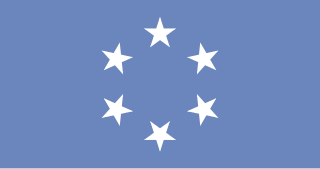
The Trust Territory of the Pacific Islands (TTPI) was a United Nations trust territory in Micronesia administered by the United States from 1947 to 1994. The Imperial Japanese South Seas Mandate had been seized by the US during the Pacific War, as Japan had administered the territory since the League of Nations gave Japan a mandate over the area from Imperial Germany after World War I. However, in the 1930s, Japan left the League of Nations and invaded additional lands. During World War II, military control of the islands was disputed, but by the war's end, the islands had come under the Allies' control. The Trust Territory of the Pacific was created to administer the islands as part of the United States while still under the auspices of the United Nations. Most of the island groups in the territory became independent states, with some degree of ties kept with the United States: the Federated States of Micronesia, Marshall Islands and Palau are today independent states in a Compact of Free Association with the US, while the Northern Mariana Islands remain under US jurisdiction, as an unincorporated territory and commonwealth.

Koror is the state comprising the main commercial centre of the Republic of Palau. It consists of several islands, the most prominent being Koror Island. It is Palau’s most populous state.

Ngchesar, also known as Oldiais, is one of the sixteen states of the nation of Palau in Oceania.

USS Knapp (DD-653), a Fletcher-class destroyer, was the only ship of the United States Navy to be named for Harry Shepard Knapp a Vice Admiral of the United States Navy and Military Governor of Santo Domingo. Her keel was laid down on 8 March 1943 by Bath Iron Works, in Bath, Maine. She was launched on 10 July 1943, sponsored by Margaret L. and Mary C. Knapp and commissioned on 16 September 1943.
Sonsorolese is a Micronesian language spoken in Palau, originally on the islands composing the state of Sonsorol, and spreading through migration elsewhere in the country. It is very close to Tobian.

Ngardmau is one of Palau's sixteen states and is located on the west side of Babeldaob between the states of Ngaraard and Ngeremlengui.
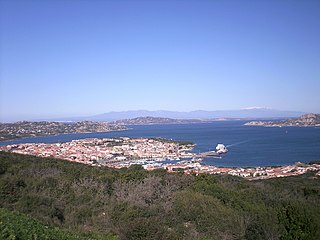
Palau is a comune (municipality) in the province of Sassari, in the Italian region of Sardinia, about 220 kilometres (140 mi) north of Cagliari and about 30 kilometres (19 mi) northwest of Olbia. It was a frazione of the comune of Tempio Pausania until 1959.

Roman Tmetuchl International Airport, also known as Palau International Airport is the main airport of Palau. It is located near the former capital Koror, just north of Ngetkib, Airai on Babeldaob island. The airport is 4 miles (6 km) from Koror and 15 miles (25 km) from Ngerulmud.
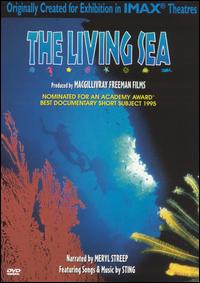
The Living Sea is a 70mm American documentary film exploring marine locales intended to show the importance of protecting the ocean, released to IMAX theaters in 1995. It is narrated by actress Meryl Streep, with music by Sting, produced by Science World, a Vancouver-based science education centre, and underwater imagery directed by filmmaker Greg MacGillivray.

The Tech is a river in southern France, very close to the French-Spanish border. It runs through a valley in the Pyrénées-Orientales, in the former Roussillon, and is 84.5 kilometres (52.5 mi) long. Its source is the Parcigoule Valley, elevation 2,500 metres (8,200 ft), and it feeds the Mediterranean Sea. At Céret, the medieval Devil's bridge, once the largest bridge arch in the world, spans the river in an arc of 45 metres (148 ft) in length.

The defense of Palau is the responsibility of the United States, but local police matters are handled by the Palau Police, the national police force. Some of the sixteen states also had separate police departments during the 1980s and 1990s.

The Seal of Palau depicts a traditional meeting center. The executive seal, used by overseas missions and by the nation's president, is also of a similar design.

Melekeok is a state of the Republic of Palau located on the central east coast of Babeldaob Island. The seat of government of the country, Ngerulmud, is located in the state. The state consists of long beaches, hills, steep ridges, rivers, and the largest and only natural freshwater lake in Palau and Micronesia, Lake Ngardok.
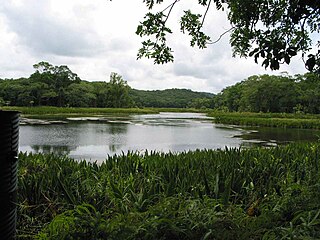
Lake Ngardok is a lake on the Palauan island of Babeldaob, in the State of Melekeok. It is the largest natural freshwater lake in all of the islands of Micronesia. The lake and the marshes surrounding it are a refuge for the endangered saltwater crocodile (ius), and it is an important breeding location for them. The Ngerdorch River serves as a route that connects crocodiles with the sea. The lake is approximately 493 hectares with an ecosystem that provides a habitat for plants, wildlife, and birds, some of which are found only in the Palau Islands. These include the endemic Palau fruit dove (biib), Palau fantail (melimdelebdeb), Micronesian imperial-pigeon (belochel), common moorhens and Pacific black ducks, Palau flycatcher (charmelachull), and a fruit bat species (olik). The Chief Council of Melekeok State has established the Ngardok Nature Reserve to protect the watershed's slow degradation process, because the importance of the forests are critical to preserving the water quality in the lake. The lake however will soon be established as a reservoir for Ngerulmud, Palau's new national capital in Melekeok.
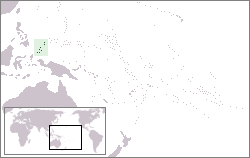
The environment of Palau consists of a number of islands in the western Pacific Ocean.
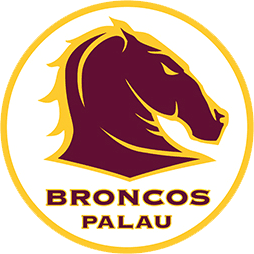
Palau XIII Broncos also known as Palau XIII or Palau Broncos are a professional rugby league team based in Palau-del-Vidre in the Occitanie region in the south of France. They currently play in the Elite 2 championship which is the second level in France. The club was founded in 1920. They play their matches at the Stade Georges Vaills.
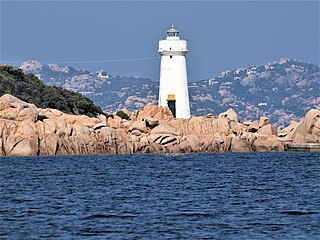
Capo d'Orso Lighthouse is an active lighthouse located on the tip of Capo d'Orso promontory in front of the Maddalena archipelago, in the municipality of Palau, in the north east of Sardinia on the Tyrrhenian Sea.

Punta Palau Lighthouse is an active lighthouse located on the northern extremity of a granite promontory where, shaped by time, appears a natural sculpture that looks like a bear, symbol of Palau in front of the Maddalena archipelago on the Tyrrhenian Sea.
Ngermid is a village in Koror, Palau, bordering Nikko Bay. The nearby Itungelbai river runs from its source in Ngermid through a short, narrow gorge to the sea.

















